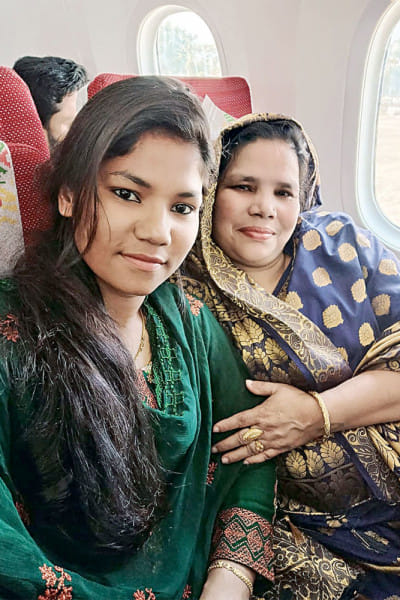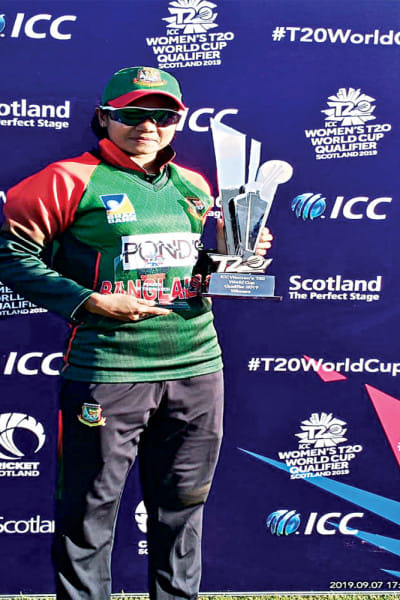The long road to Sanjida’s success

For most people, sport is mere entertainment during their early age. It may later turn into a profession, but that usually depends on a lot of factors. However, for Bangladesh batter Sanjida Islam, even during her childhood, sport was more a necessity than a form of entertainment.
Unlike most students, Sanjida could only make it into high school because of her interest in sports. "Since childhood, I was a very mischievous girl who always used to go out and play. I somehow managed to cross primary school. But to enter high school required money for admission and other necessities which my family could not afford. But fortunately, we came to know about a girls' school in our locality which allowed girls who would play regularly to study for free. I joined that school and started by playing volleyball and handball," said the now 24-year-old.
It is a very common scenario in our country to see girls being discouraged by their families to pursue a career in sport but although Sanjida had her family's support, the thing she lacked was the financial capability to help her in her pursuit.
"When I was in sixth grade, we came to know that the BKSP was trying to form a women's cricket team. My father had to toil hard to arrange the money that I needed to go for a trial at BKSP in Dhaka. I went to the trial and eventually got selected," reminisced Sanjida.
But still, Sanjida's days of hardship were far from over. Sanjida and her family, who had returned from Dhaka with high hopes, saw their dreams shatter when they finally received long-awaited letter from the BKSP.

"My family and I were eagerly waiting for the letter from BKSP after returning from Dhaka. But our hopes dimmed after not receiving a letter for several days. However, suddenly one day the most awaited letter came to our address but what we found out after reading the 26- or 27-page letter would only shatter all our hopes.
"We came to know that it would require Tk 5000 and a lot of other things including school dress, sports jerseys, sports equipment in order to get admitted to the BKSP. But my father did not give up. He went from door to door with the BKSP's letter and was able to gather the fund I required," recalled Sanjida.
Sanjida's life has turned around since then. Known as a T20 specialist, Sanjida has now represented Bangladesh Women's team in 54 T20Is and 16 ODIs till date. However, the right-hander's only regret is that her father, for whom she has made it this far, could not live to witness the success of her daughter.

 For all latest news, follow The Daily Star's Google News channel.
For all latest news, follow The Daily Star's Google News channel. 



Comments